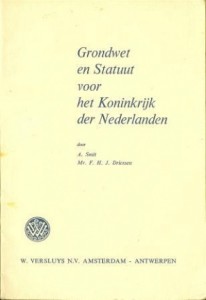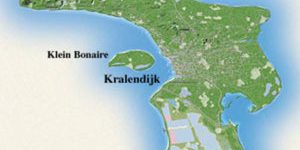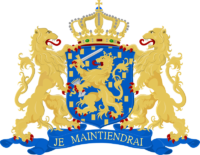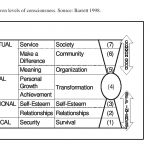The Kingdom Of The Netherlands In The Caribbean ~ Denicio Brison To Francio Guadeloupe
No comments yet I have read your paper and would like to address a few of the issues you have raised.
I have read your paper and would like to address a few of the issues you have raised.
First of all, I have worked out a theoretical frame work that relies on a mathematical model to predict when autochthony would rear its head. Basically it states that every society has a given tolerance level for accepting outsiders. Once this level is breached, the reactions you describe set in. But there are other factors; different groups in the same society display different levels of tolerance to foreigners, depending on how much they benefit from foreigners or are threatened by their presence. In addition, there are differences in tolerance levels for different types of foreigners, depending on education levels, racial background and perceived integration prognosis. In addition, these tolerance levels change over time, within all the various categories. By assigning values to the different variables I mentioned and plugging them into an equation one can attempt to project just how many foreigners the local population as a whole can tolerate without creating social friction and resentment. Sure, we all belong to the human race, but still we need time to adapt to the changes the movement of people creates. By being sensitive to the tolerance level of the host country and showing understanding for the fears and anxieties of their hosts, prospective immigrants can make their adjustment much easier. They can also identify countries where their presence is more appreciated and avoid countries where tolerance levels are approaching the breaking point. It makes no sense to force oneself on others, no matter how much the Other is a member of the human race. Forcing the issue only creates friction and resentment.
Secondly, don’t many people still believe that there are distinct races? You state that differences in phenotype are but superficial adaptations to the environment: ‘Europeans, Asians, Australians, and Americans are disguised Africans’. Try selling this idea, i.e. that whites are disguised Africans, and experience the hostility the very idea provokes. Academics readily accept this theory. But it is with the same approach as evolutionists. They accept that we are descendants of apes, but it was all so long ago, so speculative as to render it nothing more than a vague abstraction. So too, should the idea of black as the proto-type of the human race be seen. Keep it safely in the outermost recesses of human existence. A long, long time ago. Most whites would be deeply offended by anything more immediate.
Thirdly, what do you mean with: ‘Employing the moral science of statistics’. Is statistics a ‘moral science’?
Fourthly, living on Sint Maarten, one can safely argue that ‘neo-colonialism’ is not an outdated concept at all, but alive and well. Classical colonialism was the exploitation of the colony for the benefit of the mother country. Neo-colonialism is the exploitation of the colony for the benefit of agents of the mother country, its most visible manifestation being technical and other forms of ‘assistance’. Technical assistants earn many multiples of what a similarly, or better qualified local can expect to earn, live in exclusive enclaves and in general enjoy a luxurious season in Paradise. Big infrastructural projects end up in the hands of contractors of the donor country and the colony or recipient country is little more than a transfer point for the money. Precious little real development ever comes from ‘technical assistance’ or ‘project grants and financing’ (see Gunnar Myrdal on this). Projects such as DEPOS’ are prime examples. Its prime beneficiaries are a coterie of Dutch technical advisors and contractors. This is the reality of the ‘new colonialism’ or ‘neo-colonialism’.
Finally, you state that no country can be truly independent within our global age. My idea is that countries do not seek independence in the classical term of the word but they want sovereignty. Only sovereign countries can collaborate on a voluntary basis, to achieve mutually beneficial ends. A country that is dependent, that has not achieved political independence, cannot enter into agreements with other countries on its own. First of all other countries do not recognize it and secondly, it is the mother country that enters into international treaties for and on its behalf. It is dependent. It cannot act on its own. Only a sovereign country is free to decide to join, say the EU. The EU does not enter into discussions with countries that are not politically independent.
You May Also Like
Comments
Leave a Reply








